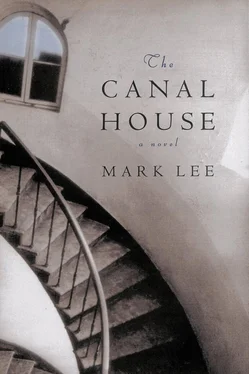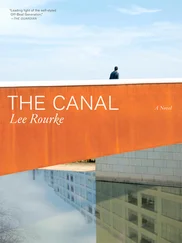“Samuel Okello wants to talk to us. We’ve traveled thousands of miles to see him. He will punish anyone who harms our guide.”
The tall man looked startled when he heard Okello’s name. He turned to the three seraphim and spoke in their tribal language. The three boys lowered their rifles but kept their hands on the trigger guards.
“If you want to walk to our camp, then we must blindfold you.”
“There’s no reason to use blindfolds. We’re journalists, not soldiers. We’ve come from London to write down the Prophet’s words. You shouldn’t make him angry.”
The tall man looked frightened. He seemed to think that Samuel Okello might appear in front of us and punish him for making the wrong choice. The three seraphim kept glancing over their shoulders, waiting for the command to shoot, but the tall man snapped his jaw shut so that it made a faint clicking sound. He raised his rifle and motioned to the grass.
“I am the archangel Piramoi. If you’re lying to me about the Prophet, all of you will be killed.”
Piramoi led us, single file, out of the riverbed and down a narrow path. The three seraphim were behind us, whispering. I was too tired and thirsty to be scared. My camera bag and travel bag kept bouncing against my legs, and I wanted to throw them away. Isaac walked in front of me with his head bowed like a criminal going to his execution. Every time the path split into different directions, Piramoi knelt down and searched for a small stone that had been hidden in the grass. The sun was falling toward the horizon. We followed it west for several hours; then the marker stones guided us northeast. I was about to sit down and refuse to go any farther when we climbed a slope to a plateau dotted with trees. We pushed through the grass and bumped into a pregnant teenage girl sitting in the doorway of a thatch-roofed hut. She stared at us as if we had just arrived from Jupiter, then jumped up and followed the procession.
The trail led us past two other huts and a long brick building with empty windows. I found out later that the brick building had once been part of a British military outpost. Samuel Okello was wary of government scout planes so he hadn’t cleared away the tall grass and thornbushes. Every structure was covered with thatching that blended in with the surrounding countryside.
The crowd around us became larger. Most of them were boys carrying rifles, but there were a few girls looking dirty and scared. Two vehicles were parked beside the building: a Toyota Land Cruiser with a UGANDA PARKS insignia on the door and a blue van that probably had been stolen from some matatu driver. Grass had been bound in sheaves and tied to the roofs of both vehicles.
Piramoi went inside the building. Another archangel came out a few minutes later and demanded our passports and travel bags. I managed to keep my two cameras, but an older seraphim grabbed my sun hat. A hat was worth something in the bush, but my cameras were completely useless.
We stood there for twenty minutes while the seraphim stared at us as if we were rare beasts that had been driven out of the grass. Finally, Piramoi and two other archangels came out of the house and everyone stopped talking.
“You go with the others,” Piramoi said to Daniel.
“What about Reverend Okello?”
“That is the order. You stay with the others.” And he led us through the camp to a stick and thorn enclosure that had once been used as a cattle pen. The seraphim pulled the branch back and Piramoi motioned us forward. Inside the enclosure were two thatched-roof shelters that reminded me of beach cabanas. Six people sat in the shade on straw mats.
A young man with a blond beard and ponytail ran over to us. “Deutsche?” he asked. “British? American?”
“American.”
“You’re from the embassy?”
“No, we’re journalists.”
The young man looked disappointed. Without speaking another word, he turned away from us and walked over to his companions. “Not from an embassy. Not from the Red Cross. Journalists.”
• • •
DANIEL AND I went over to the shelters and met the hostages. We sat down and began to talk while Isaac stayed apart from us. All the hostages had suffered from malaria and dysentery. They’d been wearing the same clothes for the last four months and their shoes were falling apart. Most people assume that they’re going to act like a hero in a situation like this, but illness and malnutrition had worn them down. They had exchanged their life histories, told every story twice, and there was nothing more to say. Now they spent their time lying on the straw mats, waiting passively for their ration of millet porridge.
Michael and Nora Barrow were from a suburb of northern New Jersey. Michael was a phone company executive who had spent most of his life giving orders, but now he’d become confused and frightened. His wife, Nora, was a nervous woman who noticed the slightest change in the daily routine. If they replaced the guards or fed them with different bowls, she concluded that Okello was getting ready to kill them.
Ray Stokes was a short, feisty man in his sixties who ran a garage in Oxford. His wife, Livy, had become depressed, but Ray was the chief optimist of the group. He had convinced himself that American spy satellites had found Okello’s camp and that SAS commandos were about to attack in stealth helicopters.
Joseph Henning was a German record-shop employee in his thirties who had traveled around the world for several years. Although he had lost weight, he was stronger and in better shape than the older hostages. Nora Barrow was suspicious of Joseph because he knew a little Swahili and occasionally talked to the guards.
At the beginning of their captivity Okello had intimidated the hostages with his power. They were kept blindfolded for several days, then forced to watch one of the archangels execute a twelve-year-old girl. When some of the soldiers returned to camp with amputated hands, Okello placed a basketful of them in the hostage compound. A line of ants had flowed like a tiny black river beneath the thorn wall and across the dirt to the basket.
Eventually, Joan Siebert, the sixth hostage, picked up the basket and gave it to one of the seraphim. “Tell the Prophet that we’ve had this long enough,” she said and the guard obeyed her.
Joan was a small woman in her seventies, a librarian from Wisconsin who had cashed in one of her retirement funds to come to Africa. She was calm and practical, and the other hostages usually followed her lead. During the last few weeks, Joan had started to have physical problems. Her pulse was low, her hands and feet felt tingly, and she got dizzy whenever she stood up.
“I haven’t been sick for almost forty years,” she told us. “That is, if you don’t count a hip operation. Being sick is not the way I see myself. I wake up every morning and decide that I’m going to be all right, but my body doesn’t seem to be listening.”
“I’m sorry,” Daniel said. “We didn’t bring any medicine.”
“Did you bring any books?” she asked.
“Nothing but food and water.”
“It’s been difficult to deal with Mr. Okello, but my major problem is boredom. We just sit around all day. There’s nothing to do and no one wants to talk anymore. Lately I’ve been making a list of my ten favorite books. I argue with myself whether a particular novel should be number three or number five.”
“What’s your first choice?” I asked.
“ Sense and Sensibility . No illustrations. With a sewn binding.”
MILLET PORRIDGE WAS served to us around five o’clock and the hostages went through little rituals with their bowls and spoons. Daniel and I had been talking ever since we met the hostages; this was the first time I was able to sit alone and analyze the situation. We were prisoners. Okello was crazy. And there was no indication that they would release us.
Читать дальше












